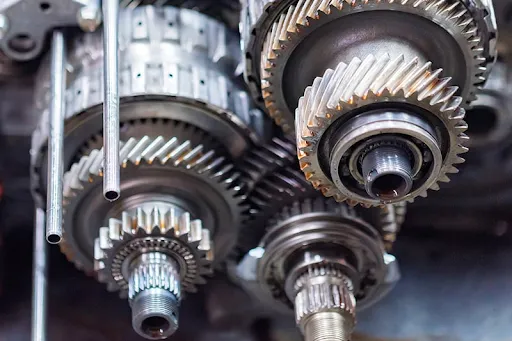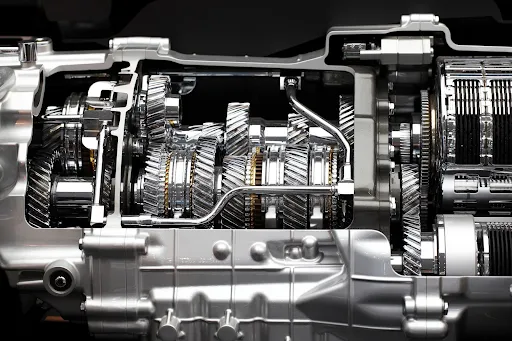Mon - Fri: 8am - 5pm, Sat - Sun: Closed

6-36 Month Warranties
We Ship Local.
Hablamos Español.
Connect with
New vs. Rebuilt Transmissions
Making the Right Choice
Is it Cheaper to Buy a New Transmission or Rebuild?

For many car owners, one of the most critical decisions is choosing between buying a new transmission or opting for a rebuild. This choice is not just a matter of immediate cost but also involves considering long-term reliability, performance, and overall value.
The dilemma often boils down to understanding which option offers the best balance of cost-effectiveness and enduring quality.
Today, we’ll be diving into an in-depth analysis of both paths, comparing the costs and benefits to help you make an informed decision that aligns with your vehicle's needs and your financial considerations.
The Economic Perspective: New vs. Rebuilt Transmissions
When weighing the options between a new transmission and a rebuilt one, the economic perspective plays a crucial role. Initially, new transmissions are typically more expensive due to their unused, factory-made condition.
They come with the assurance of brand-new parts, but this comes at a premium price. The higher initial cost, however, is often justified by a longer warranty and the expectation of a longer lifespan without significant repairs.
On the other hand, rebuilt transmissions present a more cost-effective solution upfront. Rebuilders take an existing transmission and replace worn or damaged components, often upgrading them to improve performance and reliability.
The initial cost is generally lower compared to buying new, making it an attractive option for those on a tighter budget. However, the longevity and performance of a rebuilt transmission heavily depend on the quality of the rebuild process and the parts used.
Long-term value and potential return on investment also differ significantly between these options. While a new transmission might offer more years of trouble-free operation, a well-rebuilt transmission can provide similar reliability at a fraction of the cost.
For car owners who do not plan to keep their vehicle for many years, a rebuilt transmission might offer a better return on investment by providing the necessary functionality without the hefty price tag of a new unit.
Cost Analysis: New Transmission vs. Rebuild
The choice between buying a new transmission or opting for a rebuild is a complex decision, hinging on various cost considerations. This analysis goes beyond the initial price tag, encompassing labor, parts, and future maintenance expenses.
New Transmissions: Higher Upfront Cost with Warranty Benefits
New transmissions come with a higher initial cost. This includes the price of the transmission, crafted to the latest standards, and installation labor. These often have warranties, potentially lowering future repair expenses, but the total cost can be significant, especially for luxury or rare vehicles.
Rebuilds: Lower Initial Cost with Variable Parts and Labor Expenses
Rebuilding a transmission typically costs less upfront. It involves disassembling, repairing, or replacing damaged components, then reassembling. The parts' cost depends on the damage severity and parts' quality.
While higher-quality parts might raise the rebuild cost, they could offer long-term savings by reducing future breakdowns. Labor costs for rebuilds may be lower than new installations, but this varies based on transmission complexity and rebuild scope.
Considering Future Maintenance Costs
Future maintenance expenses are a critical factor. New transmissions might incur lower maintenance costs initially due to their condition and warranty. However, a well-executed rebuild can be just as reliable. The longevity and reliability of a rebuilt transmission largely depend on the quality of workmanship and parts used.
Evaluating the Longevity and Performance
When deciding between a new and a rebuilt transmission, evaluating their longevity and performance is essential, as these factors significantly contribute to their overall cost-effectiveness.
A new transmission, straight from the manufacturer, typically comes with the assurance of longevity. Built with brand-new parts and the latest technology, it's designed to last for a substantial period, often making it a once-in-a-lifetime investment for the vehicle.
The performance of a new transmission is usually optimal, offering smooth shifting, reliability, and improved fuel efficiency. This long-term dependability can be particularly cost-effective for those planning to keep their vehicle for many years.

Rebuilt transmissions, however, have made considerable strides in matching the performance and longevity of new ones. The key lies in the quality of the rebuild process. A transmission rebuilt by experienced professionals using high-grade parts can often rival a new one in performance.
While a rebuilt transmission might not have the same lifespan as a brand-new one, advancements in rebuilding techniques and component quality have significantly narrowed this gap.
The cost-effectiveness of a rebuilt transmission becomes evident when considering its reduced upfront costs and the potential for comparable longevity and performance. For many car owners, a well-rebuilt transmission offers a balance between economic feasibility and functional reliability, especially when the vehicle in question is not expected to be in service for many more years.
Making the Decision: Factors to Consider
Vehicle Condition and Age
Assess the current state and age of your vehicle. A new transmission could significantly extend the lifespan of a newer model, whereas for an older or high-mileage car, a remanufactured transmission might be more appropriate and financially sensible.
Personal Preferences and Driving Habits
Reflect on your personal preferences and how you use your vehicle. If optimal performance and having the latest technology are priorities, a new transmission could be worth the investment. However, for everyday use where advanced features might not be as crucial, a remanufactured transmission can be a practical and efficient choice.
Future Plans for the Vehicle
Consider your long-term plans for the vehicle. If you intend to keep it for many more years, a new transmission might offer better value in the long run. On the other hand, if you're planning to sell or upgrade your vehicle soon, opting for a remanufactured transmission can be a cost-effective approach.
Get our latest news and promos
QUALITY ASSURED


SATISFACTION GUARANTEED

UNPARALLELED SUPPORT
Houston Engines
Proud Member



Social Media
Payments Accepted
Ship Via











